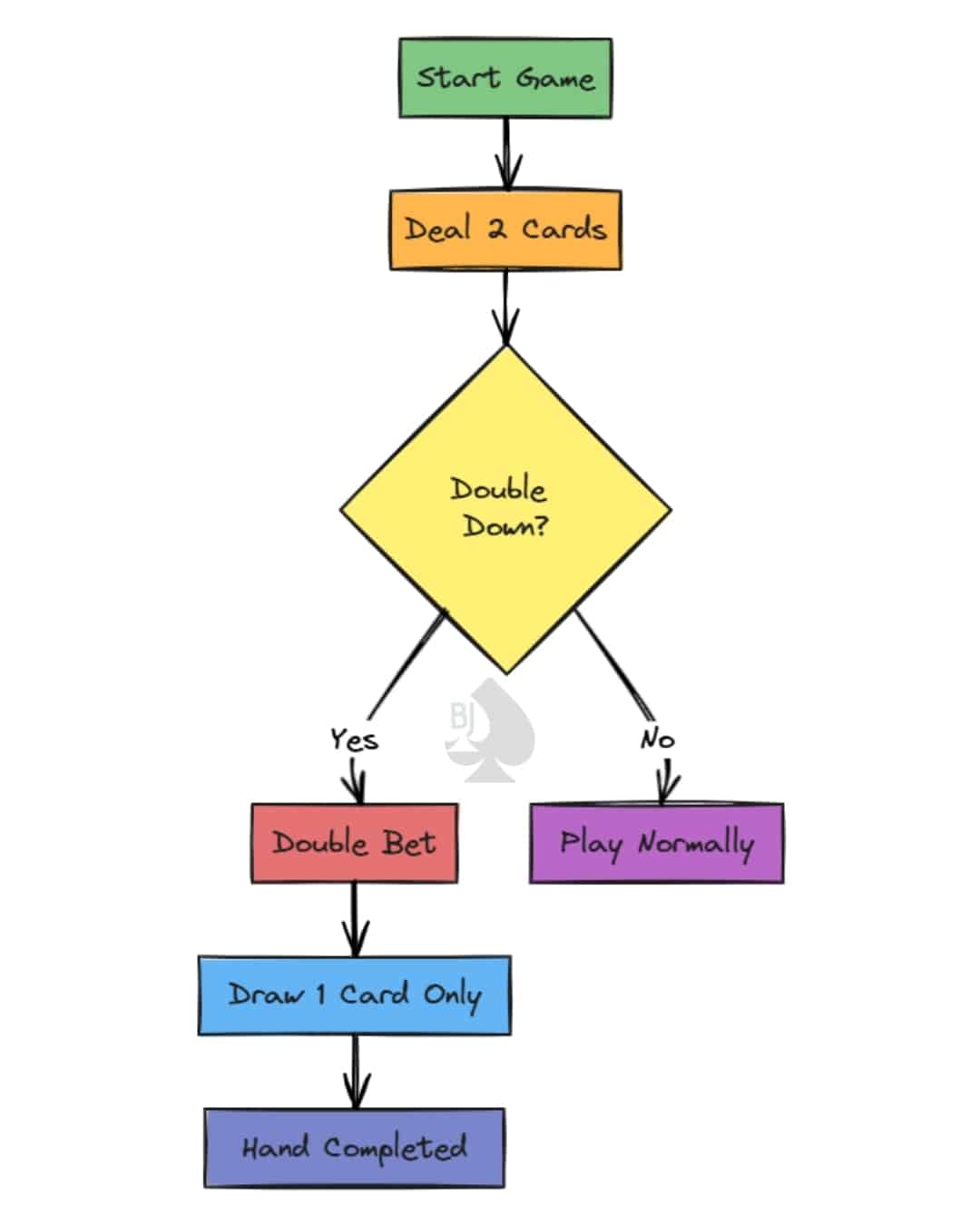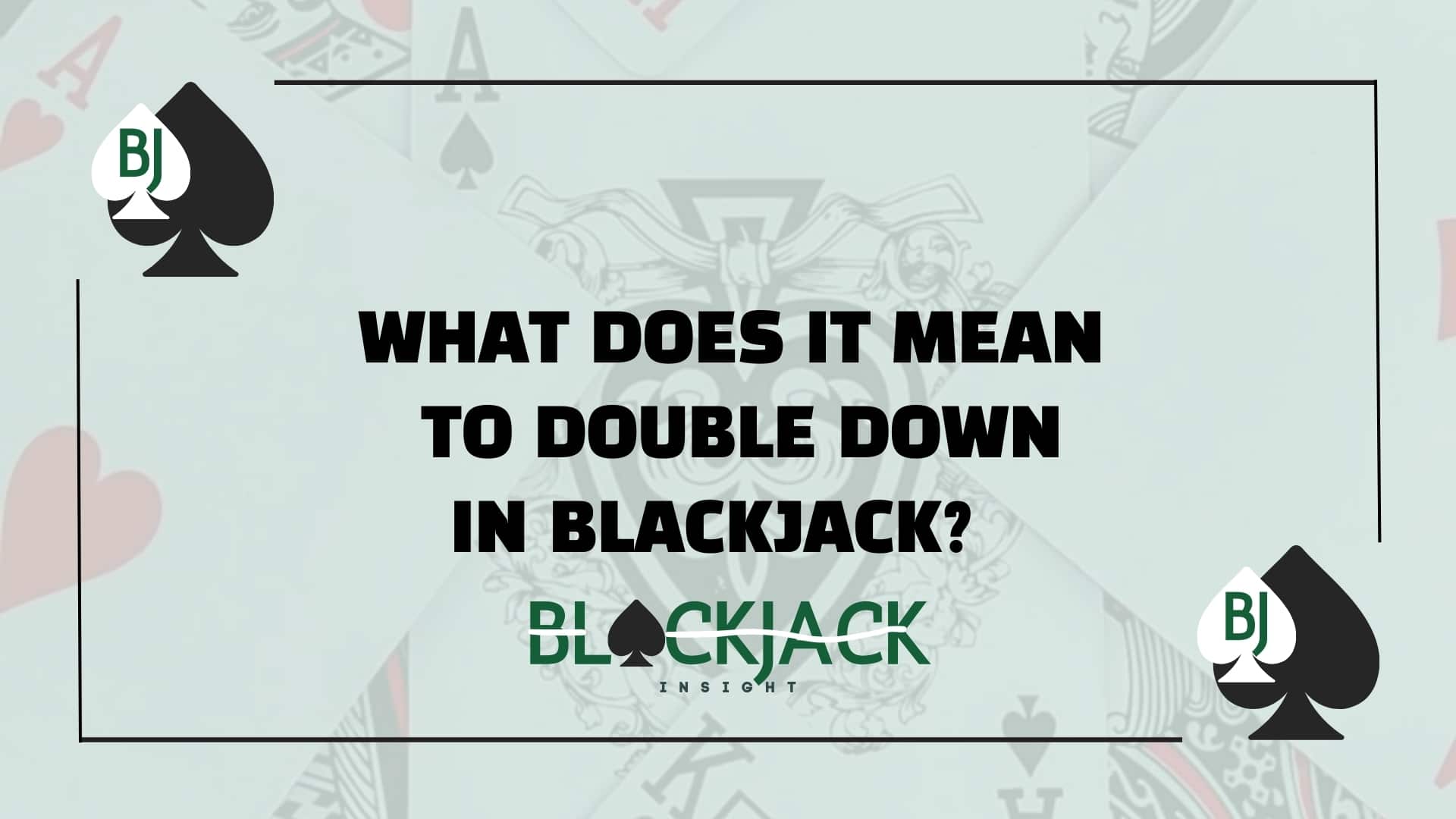What Does It Mean to Double Down in Blackjack?
Table Of Content
Imagine you’re seated at a blackjack table, chips in front of you, and you catch yourself wondering, “What Does It Mean to Double Down in Blackjack?”—it’s not secret code, just a savvy play where you double your original wager in exchange for exactly one more card. Players announce it with confidence because, when used correctly—typically on a hard 10 or 11—it can dramatically boost your potential winnings. It’s a bold move that signals you believe the odds are in your favor, transforming an ordinary hand into a high‑stakes opportunity and adding an exhilarating twist to your strategy.
What Is Doubling Down in Blackjack?
In the simplest terms, doubling down in blackjack means you’re doubling your original bet—right in the middle of a hand—and agreeing to receive just one more card. That’s it. No more hits after that. No going back.
Let’s say you’re dealt a 9 and a 2. That gives you 11, a sweet number to build from. The dealer’s upcard is a 6, which isn’t strong. You feel good about this one. So you tell the dealer, “Double down.” You toss in an equal bet next to your original chips. The dealer slides you one more card (let’s say it’s a face card—bam, 21), and you’re done. You don’t touch your cards again, but you’ve now got twice the money riding on the outcome.
Download Blackjack Double Down Chart

Why Do People Double Down?
It’s all about opportunity. You’re doubling down because you think the odds are in your favor—and because the dealer’s position is weak. Most players do it when:
- Their cards total 9, 10, or 11
- The dealer is showing a low card (usually 4, 5, or 6)
- They want to capitalize on a strong hand while limiting the dealer’s chances
It’s a move rooted in strategy. It’s not reckless. It’s not just for gamblers chasing adrenaline (though sure, it feels great when it hits). Blackjack has math behind it. And doubling down is one of those plays that—when used at the right time—can seriously boost your long-term winnings.
The Blackjack Double Down Meaning in Action
Let’s say you’re playing at a mid-stakes table. You’re dealt a 6 and a 5 (total of 11). The dealer has a 5 face-up. This is a textbook go for it situation.
Why? Because:
- You’ve got 11. There’s a good shot the next card will land you close to 21.
- The dealer’s 5 is dangerous—for them. There’s a decent chance they’ll bust.
In this case, the blackjack double down meaning is all about seizing a window of advantage. You’re putting more money on a hand that’s statistically in your favor.
The Strategic and Mathematical Side of Double Down
A double down is not just a gamble—it’s a mathematically calculated move. Basic strategy charts outline specific scenarios where doubling down offers the best long-term returns.
Why It Works
- Increased Rewards: Doubling down maximizes your winnings when you’re in a favorable position.
- Reduced House Edge: Correctly doubling down can slightly reduce the house advantage, improving your odds in the long run.
Basic Strategy Examples
- Hand Total 10: Double down when the dealer shows a 2–9, as your chances of hitting a high total are strong.
- Hand Total 11: Double down against almost any dealer upcard, as your likelihood of hitting 21 or a high total is significant.
- Hand Total 9: Double down when the dealer shows a 3–6, as they’re at higher risk of busting.
Pitfalls to Avoid with Double Down
While the double down is powerful, it’s not without its risks. Here are some situations to avoid:
- Weak Hands (12–14): Doubling down on middling totals puts you at a disadvantage, especially against a strong dealer upcard.
- Dealer Strong Upcards (10 or Ace): Avoid doubling down when the dealer shows a strong card, as the odds are not in your favor.
- Unfamiliar Rules: Always check the table rules before doubling down. Variants like single-deck, multi-deck, or European Blackjack may have specific restrictions.
FAQs
1. Can I double down for less than my original bet?
Some casinos allow you to double down for an amount smaller than your initial wager (known as “doubling for less”), but this practice varies by house rules. While it might reduce risk in uncertain situations, it also minimizes the potential reward if your hand improves. Always clarify with the dealer or check the table signage to see if this option is permitted.
2. Does doubling down affect my ability to surrender later?
In most Blackjack variations, once you’ve chosen to double down, you cannot surrender if the next card isn’t favorable. The surrender option typically applies only before taking any other actions—so once you double, your bet is locked in, and surrender is off the table.
3. Why do some tables only allow doubling down on certain totals?
Variations like European Blackjack often restrict double downs to hands totaling 9, 10, or 11. This limitation is part of the game’s design to balance house advantage. In contrast, many North American casinos permit doubling down on any two-card total, providing more flexibility (and risk) to the player.
4. Is doubling down always the best move on an 11?
Almost always, yes. Unless the dealer’s showing an Ace and you’re at a table that doesn’t offer the option to peek for blackjack. In that case, you might want to just hit instead of risking a double.



